The Writing Life of: Lif Strand
Lif Strand
This week I am thrilled to be interviewing author Lif Strand. Lif Strand will be sharing with us details of her writing life, telling us all about her new book ‘Evolution Device‘, which was released on 28th July 2020, and answering a few fun questions too. This post contains affiliate links.
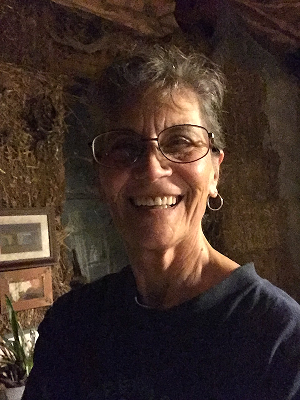
Lif Strand has been a writer-for-hire for many years. As a reporter for a regional newspaper she received the E. H. Shaffer Award (second place, news writing) from New Mexico Press Association. For the past two decades she has been a technical writer for non-profit organizations and local governments, focusing on environmental issues.
Her short stories have been published in The Arcanist and in DreamForge. Lif Strand was the cover artist for her novel of music and magic, Evolution Device, and for her self-published works. She also illustrated an edition of the novel, Skyrider, by B.M. Bower, released in 2018.
Lif Strand lives off the grid in a straw bale house way outback in New Mexico. When she’s not writing she hikes, takes a lot of photos, creates fabric art, and cares for her aged horses. Her first novel, Evolution Device, a story of magic and music, was published in 2020 and is available on Amazon in hardcover, Kindle, and Audible formats, or through your favorite brick-and-mortar bookstore.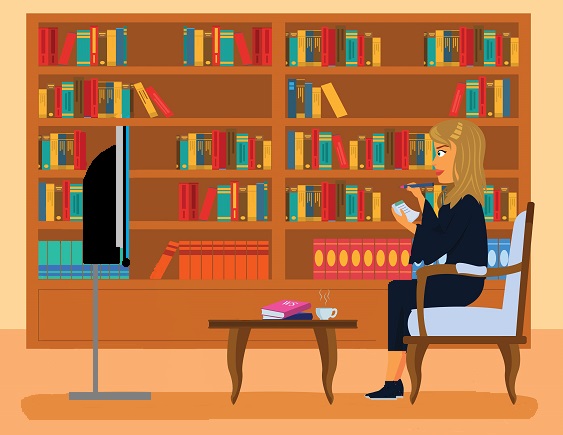
1) Did you enjoy writing when you were a child?
Hmmm… I don’t know about ‘enjoy’ exactly… I mean, that would be like asking if I enjoyed breathing when I was a child. Writing wasn’t something I thought about; it was just something I did. I didn’t write fiction, though. It never occurred to me that I could do that. When I was little I was hugely attracted to fiction but write it? No way.
It wasn’t that I didn’t have an imagination. I could spend hours creating vast adventures with my toy horses in the dirt, or barrel through the woods tethered to one of my siblings, not just pretending but actually becoming a fiery, barely-tamed horse. To me, though, that wasn’t anything like writing fiction, which was some magical thing that grownups did. I felt comfortable writing about what I saw and heard, and much later, what I was feeling. I seem to recall creating one issue of a newspaper that I put together for my family to read when I was in grade school, not that I had much news to report.
In high school, I took creative writing classes and wrote for our school’s literary magazine, the short stories and poems I submitted were all thinly disguised versions of what I saw, heard and felt — to my mind not real fiction. Real fiction was something that other people could do. I had no idea how anyone could just make stuff up. I was green with envy, to tell you the truth, even though my pieces that were published seemed to be fiction enough to those who read it.
After high school I gave up any attempt to write fiction and was content so see my articles in horse magazines and for organizations I volunteered with..
2) Which author shaped your childhood?
I’m one of those people who can’t remember authors’ names. No surprise, since I can’t remember my friends’ names half the time! But two authors’ names do leap out at me, and a third I’ll have to Google (okay, the Googled author is Jim Kjelgaard, and he wrote those wonderful books about the Irish setter, Big Red, and sons of Big Red, daughters of Big Red, aunts and uncles and next door neighbors of Big Red). Walter Farley was a huge influence on me. I don’t know how many times I’ve read The Black Stallion and all the others, though eventually I got burned out on the series.
I guess you can see a theme there: stories about animals. I read lots of them, fully immersed in the worlds created, and I’ve got to tell you, I felt brutalized when an animal suffered. It seemed back then that nobody could write an animal book in which the animal didn’t suffer. My sister tells me she remembers that I cried for days when I read Old Yeller. It got so bad that eventually I had to stop reading them.
The third author, perhaps weirdly, is Ian Fleming and his thriller contemporaries. My father and uncle were both avid readers and traded cartons of paperbacks that I freely raided when I was still in grade school. I didn’t actually understand a lot of what I was reading at that point but once I started with them I was done forever with books for children.
One final thought on childhood books – someone gave me a Little Golden Book called The Twelve Dancing Princesses (1954) illustrated by Sheilah Beckett. The story didn’t interest me as much as the illustrations did – and still do. They had so much movement in them, and they conveyed the fantasy element so well that I knew I wanted to learn how to do the same thing. That was a powerful thought for me, because unlike with the written word somehow the art world seemed entirely attainable. That’s why I spent the first 2 ½ years of my college life in art school.
3) What motivated you to begin your first novel?
I have no idea what motivated me to begin my first novel. It seems to me it was a logical progression of some sort, but I can’t really pin down why or when. In my thirties I had written some short pieces that were the offspring of drunken rambling conversations between my husband and me. We were great talkers, the two of us, but when we got to partying the topics got weird.
I recently came across a little illustrated booklet I made about a flamingo named Norbert. It had begun after spending a day at the Salinas Rodeo with a bunch of friends. On the way home, driving through the marshes along the coast, somehow we started talking about flamingos. One absurd statement led to the next, and it went off from there – with us laughing so hard that we had to pull over at one point. Today I find that the booklet doesn’t quite capture the hilariousness of the moment, but it’s typical of what I was doing then. The pleasure came from creating the whole thing, from words through illustrations to binding. The whole physical presentation.
I do know that when I started writing the first long manuscript (one that never got beyond the first draft) I was also writing magazine articles about my adventures conditioning and competing in endurance horse races (50 and 100 mile distances). The sport was so hard on me that all I could do was laugh about it afterwards – too late by then to cry. Naturally the articles were humorous — even when I was talking about hypothermia, getting lost, heat stroke, pain, and, oh yeah, driving 5 hours to a ride camp only to discover I’d forgotten to bring a saddle.
My first fiction manuscript included scenes from my own experiences, ones that had come to seem so ordinary to me but that I knew other people would – or should – be amazed by. I took my real life, embellished it, and it became something awfully like a novel, though it still seemed to me I didn’t know how to write fiction.
The story involved a woman who was a veterinarian who’d lost her license (I forget now why), who had been hired by a big Arabian ranch in the Carmel Valley of California to manage their breeding facility. She discovers a nefarious scheme to steal the inheritance of the handsome but dangerous owner, and so to save the horses she steals them herself (I don’t remember now how I justified that), transports them across two state lines to New Mexico, exposes the bad guys so they get busted, and of course, gets the man.
I know that sounds a lot like romance, but to me it didn’t really seem that way. In the 1980s my husband and I owned an Arabian breeding and training facility in California not far from Carmel Valley. I had gotten certified as a vet tech, and my business partner worked for a veterinarian. I did a lot of pedigree research, and I had rubbed shoulders with quite a few Big Name Arabian horse breeders, trainers, and brokers in the show world of that time. I personally transported a lot of horses, too.
The rough draft only exists today as a stack of continuous-feed dot matrix printer paper.
4) Do you plot your book, or are you a pantser?
Definitely a pantser! It makes my stomach clench to try to plot. Ewww – it makes me cringe just thinking about plotting!
Which is not to say I don’t prepare in advance of writing the first words. I love research. I’m one of those people who can go down that rabbit hole for hours when I only meant to look up one date or location. Invariably when I’m researching I stumble across story ideas, and I write them down. I keep on collecting ideas until somehow, like magic, there’s a story to be told and then I write it down.
5) What is your average writing day?
I’m not a morning person. I have some of my best ideas then, when my mind’s not distracted by Real Life, but don’t ask me to write anything until I’m caffeined up. Even then I can’t write because I’ve got to get out to the barn to feed my old broodmares and stallion, and to scoop poop. In the evenings I generally hike a few miles with my dogs. These daily routines are part of my writing process. While my conscious mind is occupied with tasks that don’t require much distraction, the ideas that have been fermenting deep down can bubble their way up to my awareness. When they pop into my notice I capture them by dictating into my cell phone’s recording app.
I do the real writing at my desk, which sits smack dab in the middle of my tiny one-room house. If I’ve got any recordings waiting I’ll transcribe them, and transcribing will segue into actual writing. I write till all the words have been puked out (that’s what it feels like) and then I get up and do something – house chores, generally – until suddenly the pressure in me to puke out some more words is too great and I’m back at my desk.
I love music and listen to a lot of it, but never while actively writing. I’m super focused on what I’m doing. When I get stuck I get up and walk around. Almost always the words I was looking for will come.
Generally I’m only good for about four hours, sometimes six — basically until my brain is fried.
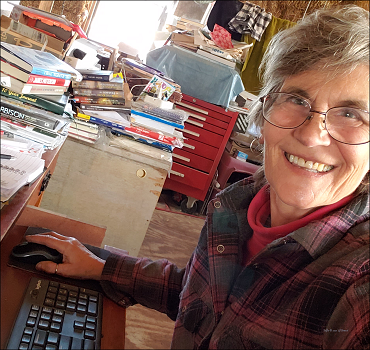
Where Lif Strand Writes
6) What is the best thing about being an author?
I’m a loner, a hermit, so writing is the ideal work for me. Being an author – a published writer for all the world to see – is still as amazing to me today as it was when my very first story came out in my high school’s literary magazine. Being the author of a novel is the best thing of all about writing. It’s what I dreamed about since I was a kid, the pinnacle of writing.
So now I’m an author! And other people see me as an author! Is that cool or what?
Publisher – Positronic Publishing
Pages – 292
Release Date – 28th July 2020
ISBN 13 – 978-1515446378
Format – ebook, paperback, audio
Synopsis
Evolution Device is a kind of hymn to the origins of rock in the early 1970s. But it is also a love story between a man, a woman, and a guitar. The woman in the story is a Muse, corporeal and ephemeral. She can be both and, quite naturally, she can also fall in love.
All well and good. But the author adds yet another twist—a guitar called the Lady. Once mused, the instrument, too, becomes a mysterious source of power. So, the story is then about a threesome: the guitarist, the muse of his dreaming psyche, and his supernatural guitar. Who gets the man? Two spirits are fighting to take possession of him. Who wins?
Actually, the man is somewhat reminiscent of Freddy Mercury, Jim Morrison, and Keith Richards, all three rock-and-rolled into one charismatic yet very fallible human being. It’s a fairytale of sorts, one that never seems unreal even though it is always fantastical.
Purchase Online From:
7) How did you go about researching the content for your book?
Evolution Device started out as a kind of homage to the incredible guitarists of the late 1960s and through the 1970s — the ones who were paving a new world of rock music, and who seemed to inevitably succumb to the lure of heroin. I read a lot of biographies and autobiographies, and magazine articles about bands, musicians, managers, and all kinds of people associated with the music industry of that time.
I was interested in learning about the culture of drug use – why musicians used, and how they functioned under its influence. Also, I wanted to pick up personal quirks, details of touring, recording, and performing that would give life to my characters, as well as the interactions between members of the bands, and between the rock gods and the rest of the world.
Back in the day I dated a DJ who took me to shows and to post-show parties. I wasn’t a groupie but I did get to see a lot of the big names up close and personal, and to hang out with roadies, stage crew, and the people who keep the business of rock and roll going. That experience informed the research for Evolution Device, and fleshed out some of what wasn’t openly discussed in the books and magazine articles.
Because my novel is not just about music, but about the extra layer in music that might be called magic, I did a lot of research on alchemy, the occult, mythology, and spiritual belief systems. I had started blogging in 2012 about the music of guitarist Jimmy Page, who is known to be interested in the work of Aleister Crowley and the religion of Thelema. My research on magic led me to blog about personal use of magic in the real world, which dovetailed nicely with Evolution Device’s rock god guitarist’s relationship with his own magical power.
8) How long did it take to go from the ideas stage to writing the last word?
The initial ideas came to me in 2011, though those ideas didn’t in any way resemble the final product. I had started writing down quotes from books I was reading that contained concepts about magic that seemed to resonate with deeper meaning. Some of that stuff ended up on my blog about magic, but some of it got stored deep down inside of me, where it got mixed with other ideas and fermented in the dark.
I actually wrote the opening scene for an early version Evolution Device at the end of 2011, though I dumped that version pretty quickly. The first “The End” was written in 2012 but I abandoned that as well, though I might use some of it in the sequel. In 2014 I finally wrote a version that most resembled what was published, though it was way too long (450 pages).
9) What made you choose the genre you write in?
I don’t think about genre when I start writing. I think about the idea I have and how I can best say everything I need to say, and then I capture those concepts in story form and worry about what genre it is afterwards. I’ve written magic realism, pure fantasy, crime, romance, and even some erotica.
When I wrote Evolution Device I wanted to talk about what a muse would be like if she were magical, and what kind of toll that would take on a guitarist who assumed the benefits as a given but wanted none of the responsibilities of power. It seemed like such a reasonable explanation as to why so many rockers ended up on heroin that it was more like historical fiction to me than fantasy. Obviously that wasn’t going to wash with an agent or publisher.
Really, I guess you could say that genre chooses me.
10) How did you come up with the name(s) for your lead character(s)?
My lead character is Eddie Edmunds. I wanted a British sounding name because Eddie’s father is British. Eddie’s full name is Eduardo Torres Edmunds — his mother is Apache, a fact that is not a focus of the book but is where the magic comes from. There are other Torres characters in the book, including Eddie’s muse. They all represent the creative aspect of Eddie, whereas the Edmunds side is the side of him that denies magic.
Eddie’s muse, Lilith Torres, is the POV character. She goes by Lily. In mythology Lilith is one of the oldest known female spiritual beings in the world. She is the dark moon goddess, representing the spiritual aspects of sensuality and freedom..
11) Can you give us an insight into your characters?
I’m a huge Jimmy Page fan. I respect him for his music and his artistic creativity as much as for his skill in the studio recording room and with all aspects of marketing. I also respect him for his no-apology pushing of the social envelope, even to this day. I wondered why, though, someone as supremely talented would give himself to heroin, how he could still have brought forth music that contained so much magic while stoned out of his gourd, and how he could have walked away from addiction.
Eddie Edmunds isn’t Jimmy Page, but he is a man who was born with power singing in his blood and grew up with no training in its use. He does know how to play the guitar, though, and the music he makes is rich with magic. His fans don’t know what it is but they know they are hungry for more, and the more they want, the more the magic blasts through Eddie and burns out any hope of control he might have over it. Heroin is what Eddie hides behind to blunt and block the magic. But magic has more power than Eddie does.
Lily is a spiritual entity, Eddie’s muse. She has always channeled the power of the universe to him in the form of music, because pure energy would fry a fragile human brain. But in a moment of stress, Eddie inadvertently drags Lily into the physical world. Suddenly Lily, as a human being, not only can’t tap power directly any longer, but she can’t do a thing about Eddie’s increasing dependence on heroin, which blunts the pain of unmodified energy at the same time it blocks her access to Eddie.
12) How did you feel when you had completed your book?
I couldn’t believe the ordeal was over. I never wanted to open the file again!
Fun Questions

1) Do you have a favourite quote you live by?
Not really. I will fall in love with one and know that it’s the perfect quote to live by, and then the next day it isn’t perfect anymore.
2) Do you have any pets?
I currently have two dogs – both rescues. Five elderly Arabian horses, all that’s left from the days when we were breeding and racing them. Half a cat — a semi-feral tomcat that is incredibly noisy and irritating, and that I worry about anyway when he goes walkabout.
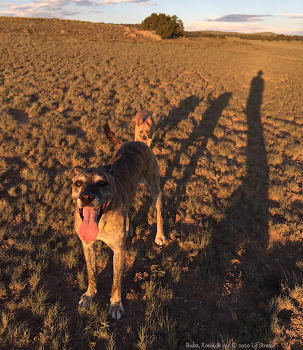
3) What’s on your current reading list?
I’m one of those people who have several books going at once. Switching between books is pretty typical of me. It’s like watching different episodes of TV shows from night to night.
These are the ones I’ve got going right now:
Educated, by Tara Westover
Death Masks, by Jim Butcher
A Promised Land, by Barak Obama
The Scorpion’s Tail, by Preston & Child
The Write to Happiness, by Samantha Shad
In The Realm of Hungry Ghosts, by Gabor Maté
4) Your book has been made into a feature film, you’ve been offered a cameo role, what would you be doing?
Maybe I’d be one of the roadies. They’re people who know the rock gods intimately but, like any servants of gods, are practically invisible.
5) If you could travel to the fictional world of any book for the day, which would you choose?
Pern! I’d ride a dragon! Go between! Or if not Pern, then Valdemar so I could look into the eyes of a Companion.
6) There’s a penguin sitting in your writing chair, what is the first thing he says to you?
“I’ve been sent by the Emperor to negotiate a contract for a three book series and movie rights for His Imperial Majesty’s life story. But before we begin, may I enquire as to whether you have some squid available to tide me over?”
I would like to say a big thank you to Lif Strand for sharing with us details of her writing life and for a wonderful interview.

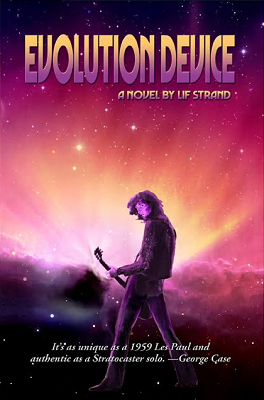




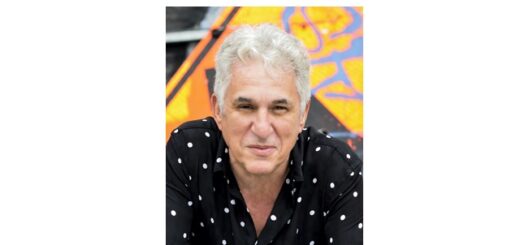

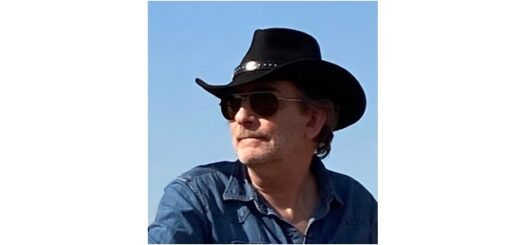

This was such a fun and interesting interview to read. Great job.
Great interview. It’s always interesting finding out the original inspiration for a book came from.
The book sounds fun and I really vibed with so many of these answers!
I love your interview!
Thanks Tasha, glad you enjoyed it.
Thanks Jo, I do too.
I completely agree. Glad you liked LIf’s answers.
Thank you Bianca, Glad you liked it.
Fabulous interview 😀 I love this book!
Thank you. Glad you like it and Lif’s book too.
She sounds like quite a character
What an interesting woman and life! Great interview!
I totally agree with you. Thanks.
I know, Lif sounds like a fascinating woman. Thanks.
Wonderful interview.
Thank you Robin. Glad you liked it.